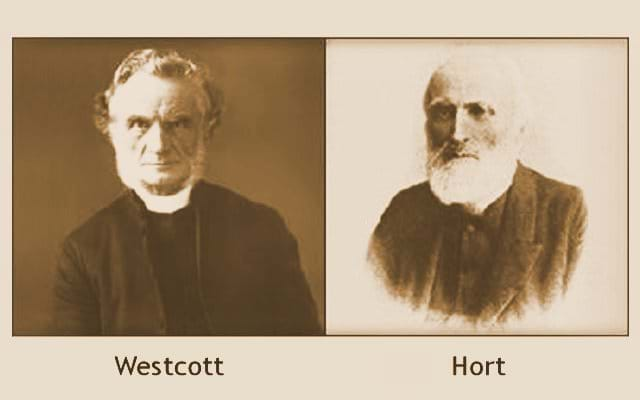It’s fairly common practice among text critics who have actually read Westcott and Hort’s famed Introduction to introduce citations from it as “Hort writes...” or the like. The reason for this is from p. 18 where, after acknowledging the benefits of their joint effort, we read:
It was however for various reasons expedient that their exposition and illustration should proceed throughout from a single hand; and the writing of this volume and the other accompaniments of the text has devolved on Dr Hort.
Despite this note and despite the habit to cite the work as Hort’s, I have always cited it as the work of both. In my dissertation, for example, my first citation footnotes the following, “Although Hort is known to have penned this introduction, I refer to both authors throughout in order to reflect Hort’s concern that Westcott’s contribution to their thinking be represented” (Critical Examination, p. 36 n. 3).
The reason for that is the letters that we have between them in which Hort was shocked to find that Westcott had apparently instructed the publisher to cut (or reduce?) Westcott’s royalties for the Introduction. Here is Hort’s initial letter and the reason why I insist on citing as I do. Hort even references the note on p. 18, which Westcott, in an earlier letter, had insisted on and approved in its final form.
To the Rev. Dr. Westcott
6 St Peter’s Terrace, Cambridge, Oct. 12., 1882
My dear Westcott,
A note has just come from Macmillan [their publisher] which distresses me much. It had never occurred to me that any question could arise as to a difference between the two volumes of our text in the matter of division of profits, and now that the question is raised, I fail to recognise the justice of the suggested difference. It is a mere accident that the Introduction and Appendix are disjoined from the text proper: till a few months before publication they were always intended to be included within the same boards, and to us at least the book remains one whole. But, apart from any considerations of this kind, the substance as distinguished from the form of Volume II is a join work, as simple matter of fact. That you entrusted me with the final redaction is an altogether subsidiary circumstance: What belongs to a part of the last two or three years must vanish in the sum of the twenty-eight. You last of all men should wish to make equality the true criterion of justice.
Nor indeed is it possible for me to forget that nothing but a difference in our scale of note-writing prevented you from contributing a large share of the Appendix; and it would be inexpressibly painful to me to be obliged to associate my acceptance of your withdrawal with such a result as you now propose. I cannot be too thankful for the generous way in which you have taken responsibility for the whole work (you must, I think, by this time be satisfied that the reference to my own special share at p. 18 has not escaped notice!); and it would be too grievous if there were a breach of solidarity now.
Ever yours affectionately
F. J. A. Hort

No comments
Post a Comment